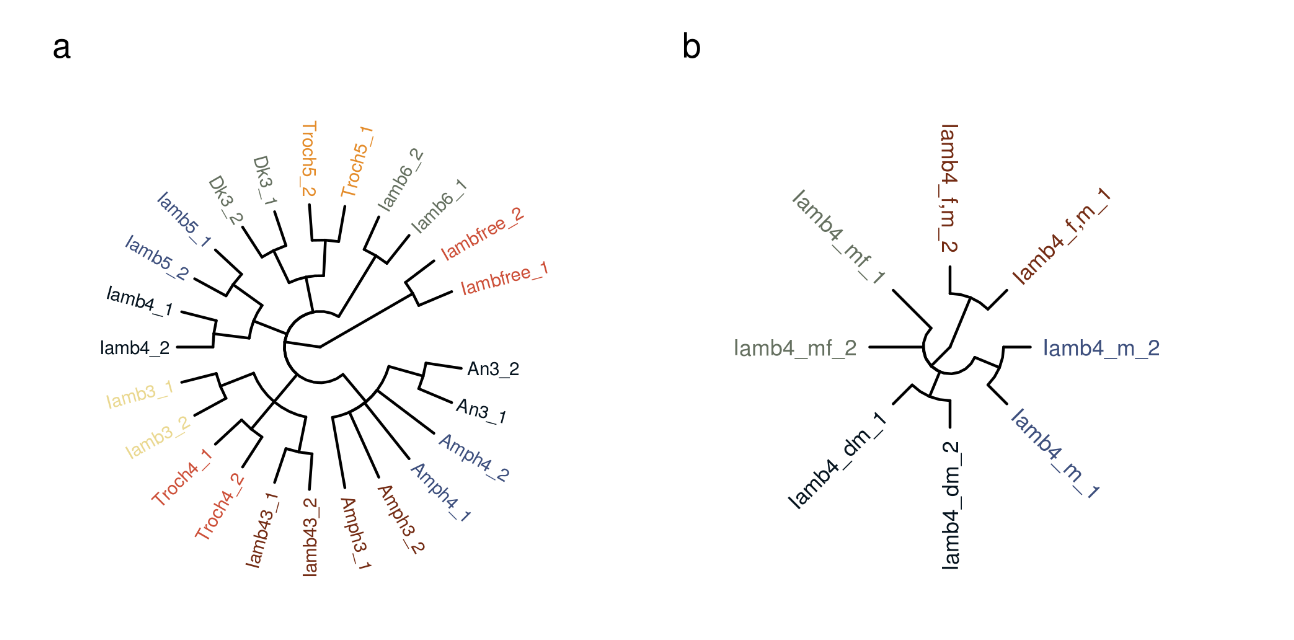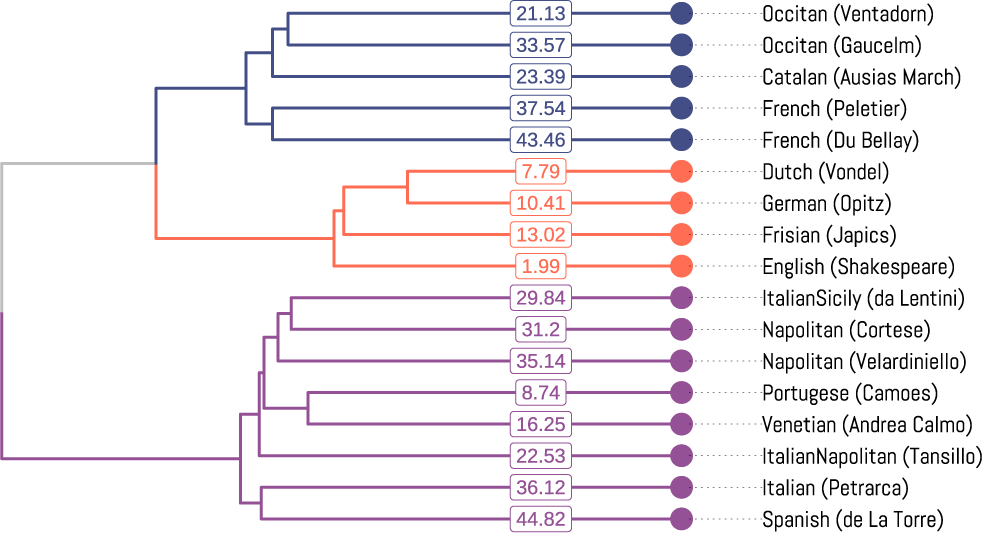Poetic meter & meaning
I study the role of poetic forms in maintaining divergent poetic traditions, or, as it is known, semantic halo of meter
Why do poetic meters ‘sound’ different? Some might even suggest that they have inherent meanings or purposes. The short answer to this question is that all poetic forms have a different history; they were used differently in the past and formed specific expectation horizons (often quite fuzzy). The long answer can be found in my work (that expands on previous fundamental research) (Šeļa, Plecháč, and Lassche 2022; Šeļa, Orekhov, and Leibov 2020; Martynenko and Šeļa 2023), where I formally demonstrate that semantic features alone can predict poetic meter across traditions and languages.

In recent paper (Nagy et al. 2025) we also propose a method for tracing and grouping metrical forms based on a poem’s scansion. This allows a principled “bottom-up” approach to metrical variation across languages and traditions: identifying metrical oddities, comparing forms, and looking at their history and diffusion, like with the “Renaissance” hendecasyllabic meter on the figure below.
